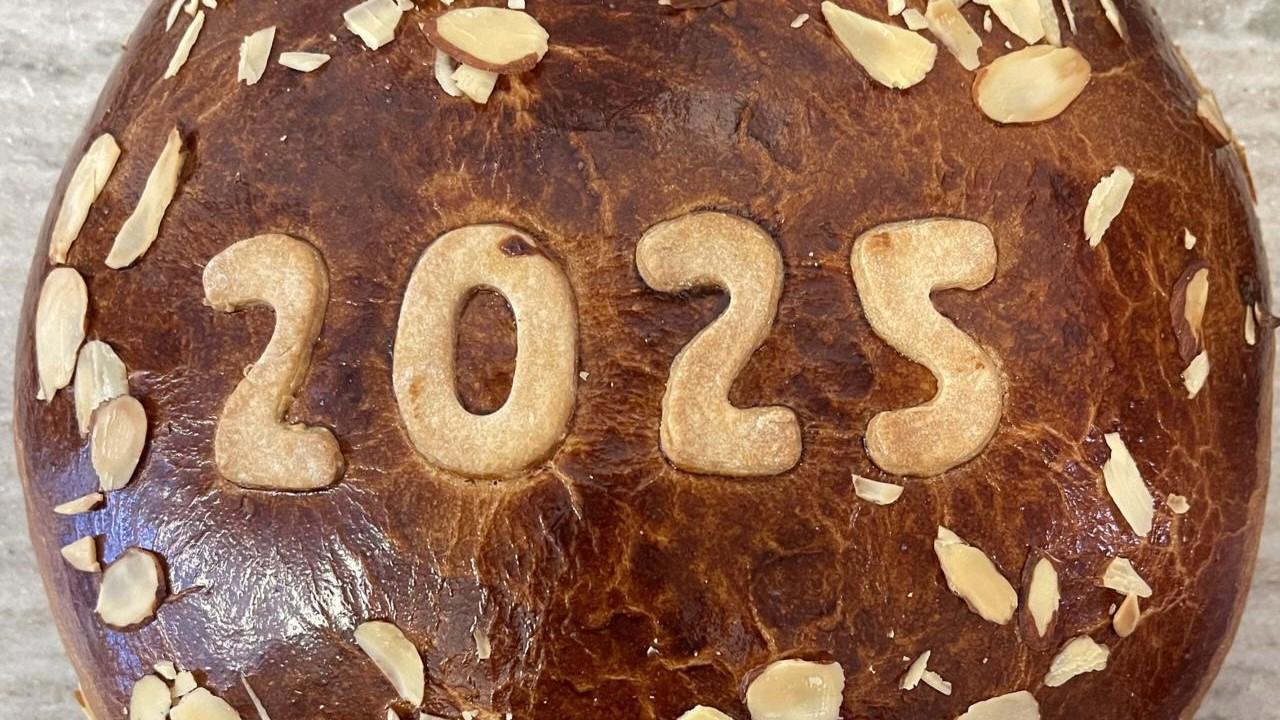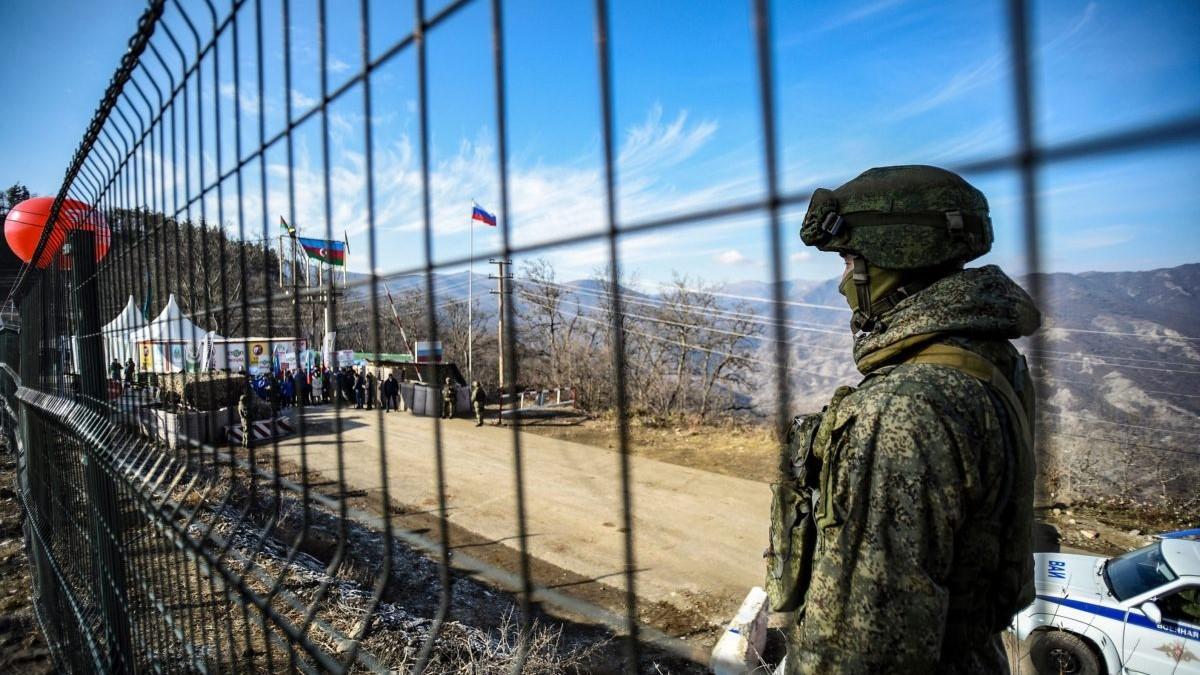Blessed in icy waters, fortune in sweet bread

Christmas is not over. At least here in Türkiye, for Orthodox Christians today, Jan. 6, is a big day to celebrate their Christmas Eve, or in other words the Epiphany. Many Orthodox churches in countries like Türkiye, Greece, Russia and Ukraine have not adopted the commonly used Gregorian calendar, which was introduced by Latin Pope Gregory of Rome in 1582. They stayed loyal to their roots, and still use the Julian calendar, created under the reign of Julius Caesar in 45 B.C.
Christmas trees still twinkle at homes, though the tradition of tree decorating was introduced only about a century ago with the influence of Westernization. The older customs are not that twinkly, especially for the Greek Orthodox in Istanbul, like elsewhere from Greece to the Czech Republic, today can be a hard day to keep traditions alive. Today Greeks in Istanbul are bound to have a chilling start taking a dip in the icy waters of the Bosporus or the Golden Horn, racing fiercely to grab a wooden cross thrown into the sea. It used to be only young men who did the chilling act of jumping into the water but in recent years a few women joined the crowd. It is not easy, very demanding indeed, even watching the daring bunch gives one shivers. Nevertheless, even if it snows, everyone is happy to repeat this annual ritual every 6th of January to celebrate Ta Fota, the baptism of Jesus Christ for the Greeks.
Ta Fota means the lights in Greek. It commemorates the baptism of Christ in the Jordan River. Ta Fota is all about purification with water, and for the Great Sanctification of Water, the celebrations are always held by the sea, lakes and rivers. Just like the baptized baby, the aim is to be purified with water. For this purpose, young people jump into the icy water to retrieve the cross thrown into the sea. Naturally, the water, or the sea, is the habitat of fish. The day is also dedicated to fishermen, and in the old days, the Greek fishermen of Bosporus used to celebrate this day with great joy and enthusiasm. The cross thrown in the water blesses the water and all water-related life, and retrieving the cross from the water signifies that there will be abundance and fertility in the seas throughout the year. In a way, for Istanbul, once it used to be the celebration of the bounty of Bosporus, the joy was shared with all communities, it was not only the Greeks but also the Armenians and some Muslim fellows also jumped into the water. On Jan. 6, spring water from Ayazma, a holy spring, is distributed to all. Holy spring water taken from the church is considered to bring good luck. A sip of that water would make all kinds of wishes come true, for the fishermen the fish would be abundant, and for the tradesmen, the business would go well.
On the evening of Jan. 6, there will be a feast at homes. However, as with many feast days, fasting comes first to help appreciate and cherish the food on the festive table. Therefore, Lent is observed on Jan. 5 before Ta Fota. In the past, on the night of Jan. 5, children used to go around the houses collecting candies, nuts or other sweetmeats. On Jan. 6, Ta Fota sweet pita bread is ceremoniously cut and shared, and at homes, there is always fish on the table in the evening. It is customary to put a coin hidden in the dough of the sweet bread, the one who gets it will be the lucky one for the whole year ahead.
Jan. 6 is Christmas Day for Gregorian Armenians, or Dzununt, the Feast of the Nativity. Instead of the sweet bread, there is a wheatberry pudding on the table named Anuş Abur, simply meaning Sweet Soup. It is not a soup of course, but a jelled concoction of wheatberries that symbolize the bounty of the fields, decorated with pomegranates which signify plenty. The night before, children go around the houses collecting gifts and tips. Again, in Istanbul, there is fish for dinner. The feast night is over at midnight, when everything is cleared off the table with only the plentiful pudding remaining. Shared with joy, the fun peaks when the hidden coin, or fava bean, or similar is found by the lucky one. This time the luck is not in the sweet bread but in the bountiful Anuş Abur.
In Western Christianity, the day is celebrated as the Three Kings Day. In a way, despite the change from the Julian Calendar to the Gregorian one, the dates of Christmas might have shifted, but celebrations cannot be given up easily. Apparently, the Eastern Christmas was eventually reborn as the Epiphany celebrations, the baptism of Jesus. Whether it be the Three Kings, or the Magi, or the Wise Men, visiting the newborn baby Jesus, the foods to celebrate are quite similar. No celebration is complete without a cake or something sweet. In countries like Spain, France, Belgium, Switzerland, Germany, and across Latin America and Mexico, a ring-shaped or round sweet bread appears as the centerpiece. Again, the lottery of finding the lucky coin is always there! Sometimes it is a single bean, sometimes it is a figure of baby Jesus, but in any case, there is a fortune hidden inside. Ornamented with candied orange peel and other glacé fruits, these round cakes are much sweeter than their Eastern counterparts. However, the joy and excitement of seeking fortune remain the same... After all, we all enjoy a bit of a lottery and hope for the future!












